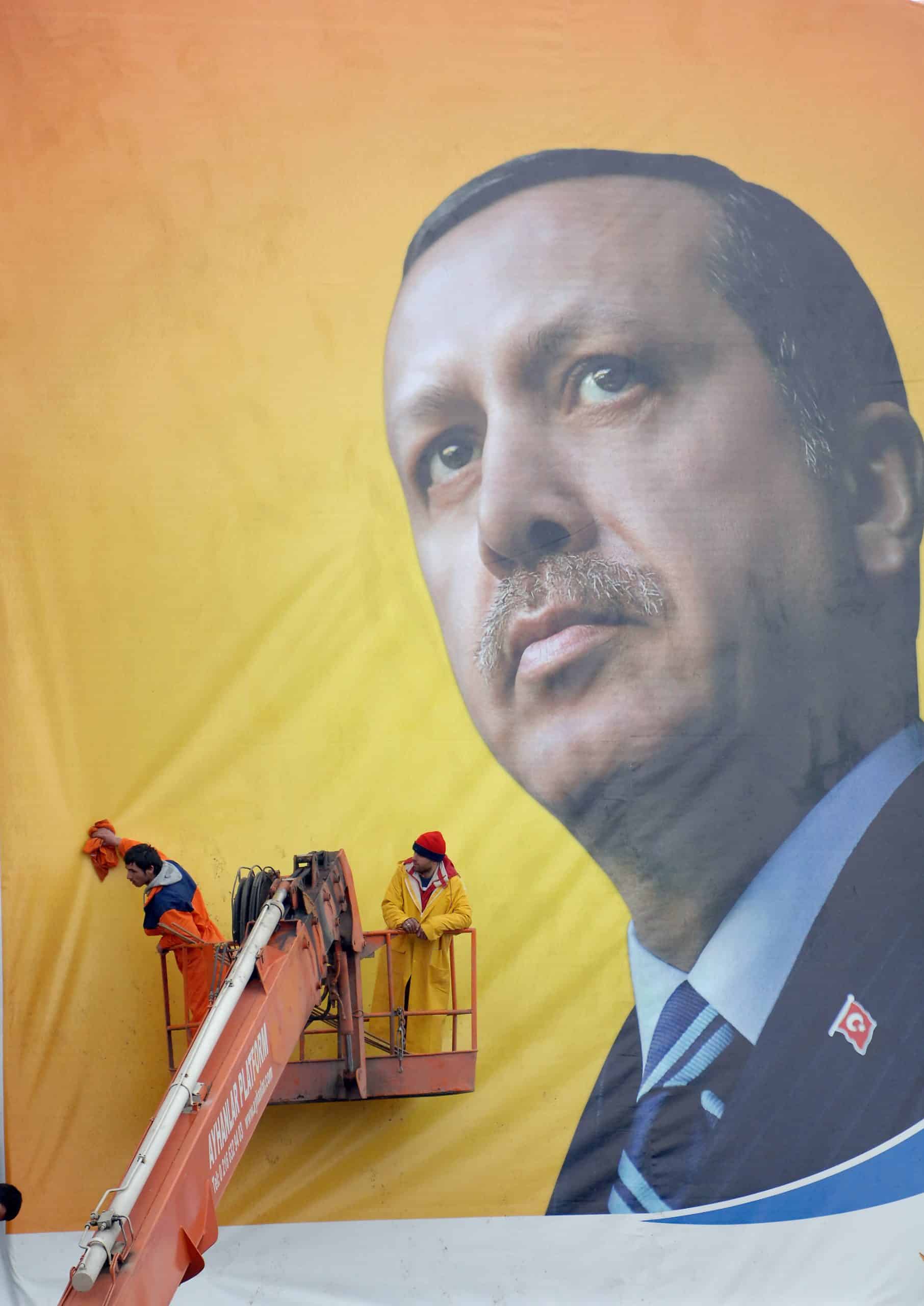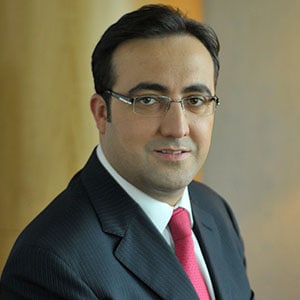The country’s economy has stalled, just in time for a crucial parliamentary election.

Over the years, foreign investors in Turkey have become accustomed to hearing that the country is at a crossroads, or worse, facing a future clouded in uncertainty. It’s 2015, and the same sentiments apply.
Turkey’s up-and-down economy is down again. After a strong performance before the global financial downturn—as well as from 2011 to 2012—Turkey’s growth rate has sagged. Output expanded by 4.1% in 2013, a solid performance. But last year GDP growth slowed to 2.9%. The government expects the figure to top 4% this year. Many forecasters are skeptical of the prediction. The OECD sees GDP growth coming in closer to 3%
A slump in domestic demand is partly to blame for the slowdown, reflecting a dramatic fall-off in consumer confidence. The state statistics office says consumer confidence is at a six-year low. The dour mood has not been helped by the lira, which lost 13% of its value against the US dollar from January to late March. The fear is that if the lira continues to depreciate, it could lead to a rise in corporate bankruptcy. Nonperforming loans are on the rise, though still at manageable levels.
There’s been a raft of other depressing statistics. Unemployment has risen to a five-year high, while industrial production unexpectedly contracted at the end of 2014. Even inflation, at 7.6%, is high by global standards, although not by Turkish ones. Higher prices make a reduction in interest rates harder for the central bank to countenance. Foreign direct investment—which topped $19 billion a year before the Global Recession—has dropped to around $12 billion.
Influential policymakers have little doubt about what is needed to end Turkey’s current straits—and it’s not keeping interest rates artificially low. “We need higher growth [targets] but can only achieve this by structural reforms, not by temporary financial and monetary policies,” argued deputy prime minister in charge of the economy Ali Babacan in mid-March.
Others agree. “Despite ongoing uncertainties, [there is] a unique opportunity for the Turkish economy in terms of introducing structural reforms and managing investors’ perceptions,” says Hüseyin Özkaya, CEO of Odeabank in Istanbul. If this process is managed well, inflation can permanently be reduced to low single-digit rates, the current-account deficit can decline further to a more sustainable level, [helped by falling oil prices], and balanced growth can be achieved.”
CENTRALIZING, CONSOLIDATING

Whether Turkey reaches those lofty goals will be determined in great part by the June parliamentary elections. The question is not whether the electorate is prepared to give the governing Justice and Development Party (AKP) another five years in power on top of the 13 it has already had. That’s a given. The key question is whether the AKP, led by president Recep Tayyip Erdoan, will get a sufficient share of seats (three-fifths) to be able to change the constitution and transform the parliamentary system into a presidential one.
Critics of Erdoan—who swept into the office after elections last August—say he is too dominant and giving him even more powers would increase the likelihood of Turkey’s becoming an authoritarian contry like Russia. “The ruling party’s main preoccupation now is the centralization and consolidation of power,” says Fadi Hakura, Turkey analyst at the Chatham House think tank in London. “It has lost interest in pursuing much-needed structural reforms, which would take too long to materialize and don’t correspond to the electoral cycle.”
For Turkey’s atomized opposition parties—which need to secure at least 10% of the vote to gain representation in parliament—taking on such an entrenched and powerful party will not be easy. There are also fears that two years after the nonviolent Gezi Park pro-democracy rallies were crushed, extremism could be on the rise. The murder on March 31 of a leading prosecutor by the leftist group DKHP-C after a highly publicized siege in Istanbul revived painful memories of the violence that plagued Turkey in the 1970s.
Indeed, even if the AKP underperforms electorally, conflict within the governing elite could lead to a form of permanent instability. Turks had a taste of this in March. First, the president criticized his government and Turkey’s central bank governor, Erdem Baçi, for not cutting interest rates and thus boosting growth. A week later he bashed the government again, apparently for moving too swiftly on peace negotiations with the Kurdish PKK. This came after the PKK’s leader, Abdullah Ocalan, called for the group to end its long struggle with the Turkish state.
FRAGILE FIVE
Still, Turkey boasts ample attractions for foreign corporate investors, not the least of which is the country’s population of nearly 80 million. For his part, lker Ayci, president of the Investment Support and Promotion Agency (Ispat), says ongoing improvements to the investment climate—including new councils where the private sector and multinationals advise on how to reduce administrative barriers to investment—have all made doing business in Turkey more transparent and straightforward. He also says efforts to make Turkey into a center for high-tech investmmnt will add to its appeal to foreign investors.
“Prime minister Ahmet Davutolu has announced a comprehensive reform plan to transform the Turkish economy into a technology-intensive one … with the main objectives of boosting efficiency and improving human resources, predictability and accountability,” he says. Ayci adds that the information and communications technology sector will likely make up 8% of the country’s GDP by the end of 2016.
Many observers argue that despite its fragilities—Turkey is deemed to be one of the most fragile of the so-called Fragile Five, owing to its high current-account deficit—the opportunities over the long term outweigh the risks. Spain’s BBVA has said it thinks Turkey has capacity to grow at 4.6% a year over the next decade. That’s similar to the country’s economic performance over the past 10 years.
A glance at what’s been going on in the wider Turkish economy shows there is much to be upbeat about.
We need higher growth [targets] but can only achieve this by structural reforms, not by temporary financial and monetary policies.
~ Ali Babacan, Turkish deputy prime minister
Turkish Airlines provides a typical illustration of the sort of turnaround that has been evident elsewhere in the economy. The online airline comparison site Skytrax has voted the carrier Europe’s best airline four years in a row. Net profit last year virtually tripled to 1.82 billion Turkish liras ($740 million), while the number of passengers jumped 13.3% over 2013 to 55 million. The airline is planning $3.8 billion in new investments, and much of that capital is going toward the expansion of its fleet from the current 261 to 300. To help finance the purchase of the planes, the airline is planning a major bond issue—anywhere from $500 million to as much as $3 billion—for the first half of this year. The loans will come due in 14 years. There have been similar, though obviously less-high-profile, successes elsewhere in the economy, notably in central Anatolia, which remains the bedrock of AKP support.
It is against this background that the government hopes to realize its much-publicized 2023 Vision—moving into the top 10 economies from its current 17th place—to coincide with the centenary of Kemal Attaturk’s establishment of the Turkish Republic. To move up the list, Turkey has embarked on a massive infrastructure build-out scheduled for completion by 2023. The investment in those projects will top $400 billion, and many will be financed through public-private partnership.
Three of the most ambitious projects—a $30 billion third airport for Istanbul, a $3.5 billion underwater tunnel connecting the European and Asian sides of Istanbul, and Kanal Istanbul, aimed at relieving congestion in the Bosphorus—have recently been given the official green light. The 43-kilometer-long, 400-meter-wide canal will connect the Black Sea and the Sea of Marmara, enabling a substantial throughput of tankers. Fees from operators will partially finance the project.
“Kanal stanbul will create many investment opportunities, since it will have a huge habitat around the lands where it passes through,” predicts Ayci.
MIDDLE-INCOME TRAP
In the meantime, however, Turkey has to pass the hurdle of the June election, which many fear could be divisive at a time when the country can least afford discord.
William Jackson, senior emerging markets analyst at Capital Economics, says there are three possible scenarios for the election. The most optimistic one sees the AKP recover its reformist zeal after the election and start to fast-track much-needed reforms, although history, Jackson warns, suggests that parties that have been in power for over 10 years seldom act this way.
The second, a pessimistic one, sees Erdoan win a mandate for transforming Turkey into a presidential system and also move to further consolidate power by replacing central bank governor Erdem Baçi with someone more amenable to his economic views. Those views include keeping interest rates low irrespective of the economic context. The third possibility, which Jackson deems most likely, sees some reforms amid a wider policy drift, with “the economy stuck in an ugly mix of weak growth of 2% to 3%, high inflation and tight monetary policy.”
Chatham House’s Hakura echoes this view, suggesting the AKP’s longevity in power and determination to consolidate its power base—including putting its own people into boardroom positions in leading Turkish banks and companies—means real reforms are no longer on the agenda. “Turkey is now stuck in a classic middle-income trap and can look forward to long-term average growth of around 3% a year at best, which, compared to recent years, almost amounts to a recession,” he argues.
Certainly the reforming zeal that characterized the early years of AKP government has faded, in the main because Turkey’s EU membership bid has effectively been shelved.
Recent talks about widening the customs union to incorporate areas not covered by the existing framework (including services, agriculture and public procurement) suggest full-scale membership is now off the table, despite vigorous suggestions to the contrary by some in Ankara. Structural reforms that would dramatically alter the investment landscape include improving labor market mobility, increasing women’s participation in the workforce and adopting policies that get citizens to save more money.
“The reason policymakers cannot raise growth from the current 3% to 4% a year up to where they want it [around 5%] is because the economy has come up against very real capacity constraints,” Jackson contends. They need to boost investment, but the only way they can do this is through an increase in the domestic savings rate.”
Although household debt remains reasonable in international terms—around 56% of GDP—it has risen markedly from 4.7% back in 2002. Meanwhile, domestic savings is just 12% of GDP. Investment is around 18%. The difference is being financed through foreign capital, which is the source of much of Turkey’s persistent current-account deficit.
“Dependence on foreign capital overshadows potential growth as higher volatility in the dollar-lira exchange rate causes uncertainty and adversely impacts growth and profitability, argues Odeabank’s Özkaya.
The big fear is that with the election, the war in neighboring Syria, and on-off negotiations with the Kurdish PKK and the DKHP-C dominating the political agenda, such fundamental reforms may fall by the wayside.



